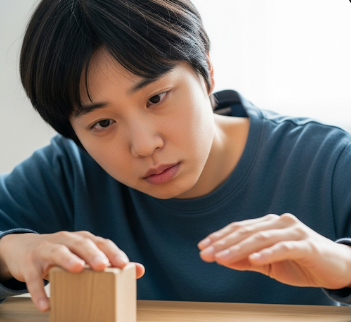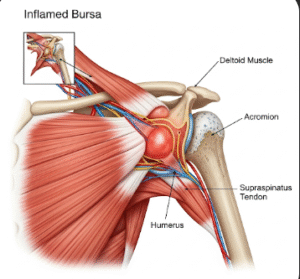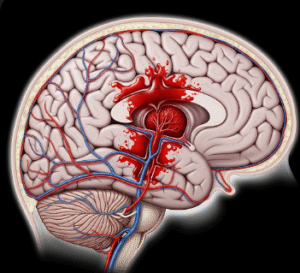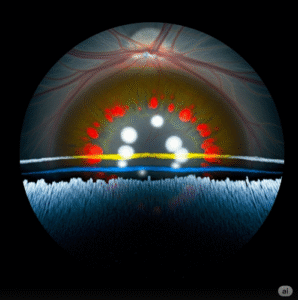Overview
Psychomotor impairment refers to a noticeable slowing or difficulty in the coordination between cognitive functions and physical movements. People with this condition may struggle with speech, body movements, or fine motor skills. It is not a disease in itself but rather a symptom or manifestation of underlying medical, psychiatric, or neurological conditions.
In Korea, psychomotor impairment is carefully studied and treated within the fields of psychiatry, neurology, and rehabilitation medicine. Korean hospitals offer cutting-edge neuroimaging, psychiatric evaluation, and rehabilitation therapies, making the country a hub for managing conditions related to psychomotor disturbances.
➤ Represents slowed or impaired mental and physical coordination
➤ Often linked to psychiatric conditions (like depression or schizophrenia) or neurological disorders (like Parkinson’s disease)
➤ Requires comprehensive medical, psychiatric, and rehabilitative evaluation
Key Facts
➤ Psychomotor impairment affects both thinking and physical actions.
➤ Symptoms include slowed speech, delayed responses, reduced movements, or poor coordination.
➤ Commonly associated with major depressive disorder, schizophrenia, Parkinson’s disease, or dementia.
➤ May appear temporarily (e.g., due to fatigue, medication, or stress) or as part of a chronic condition.
➤ In Korea, specialized psychomotor rehabilitation centers provide multidisciplinary treatment.
What is Psychomotor Impairment?
Psychomotor impairment is a disturbance in the ability to link mental processing with physical movement. Normally, the brain quickly translates thoughts into actions—for example, thinking about picking up a cup and then actually moving your hand to do so. In psychomotor impairment, this connection slows down or becomes disrupted.
This symptom can appear in varying degrees:
➤ Mild impairment (slowed movements, slightly delayed speech).
➤ Moderate impairment (difficulty initiating actions, noticeable lack of coordination).
➤ Severe impairment (near immobility, inability to perform simple motor tasks).
What Symptoms Are Related To
Psychomotor impairment often manifests as:
➤ Slowed body movements – walking slowly, difficulty initiating movement.
➤ Delayed speech – longer pauses before speaking, monotone voice.
➤ Reduced facial expressions – flat or “mask-like” face.
➤ Difficulty with fine motor skills – trouble writing, buttoning clothes, or using utensils.
➤ Restlessness or rigidity – sometimes alternating between slowness and agitation.
➤ Cognitive slowness – delayed reaction time and slow processing of information.
What Causes / Possible Causes
Psychomotor impairment can arise from multiple conditions, often involving the brain’s motor control and emotional regulation centers.
➤ Psychiatric Conditions
➤ Major Depressive Disorder – slowed movements and speech are common symptoms.
➤ Schizophrenia – psychomotor slowing may occur during negative symptom phases.
➤ Neurological Disorders
➤ Parkinson’s Disease – due to loss of dopamine in motor control regions.
➤ Dementia – psychomotor slowing appears as memory and motor decline progress.
➤ Medication Side Effects
➤ Antipsychotics, sedatives, and some antidepressants may cause psychomotor slowing.
➤ Brain Injury or Stroke
➤ Damage to motor or frontal brain regions can disrupt coordination.
➤ Substance Use or Withdrawal
➤ Alcohol or drug withdrawal may temporarily impair psychomotor function.
When Should I See My Doctor
It’s important to consult a doctor if you or someone you know experiences:
➤ Persistent slowed speech or body movements without clear reason.
➤ Sudden changes in motor coordination or responsiveness.
➤ Difficulty performing daily tasks like eating, dressing, or writing.
➤ Symptoms alongside depression, psychosis, or neurological disorders.
➤ Progressive worsening of symptoms despite rest and recovery.
A healthcare provider can determine whether the impairment is linked to neurological, psychiatric, or metabolic causes.
Care and Treatment
Since psychomotor impairment is a symptom, not a disease, treatment depends on the underlying cause.
➤ Lifestyle and Self-Care
➤ Regular exercise to maintain mobility.
➤ Healthy diet and hydration to support brain function.
➤ Stress reduction techniques (yoga, meditation).
➤ Medical Treatments
➤ Antidepressants – for psychomotor impairment linked to depression.
➤ Antiparkinsonian drugs (like levodopa) – to restore dopamine balance.
➤ Medication review – adjusting drugs that may cause slowing as a side effect.
➤ Psychological & Behavioral Therapies
➤ Cognitive Behavioral Therapy (CBT): Helps patients cope with slowed thinking.
➤ Occupational Therapy: Improves daily functioning and independence.
➤ Speech Therapy: For communication difficulties.
➤ Rehabilitation Programs
➤ Physical therapy to improve strength and coordination.
➤ Balance training and mobility exercises.
Treatment Options in Korea
Korea is globally recognized for its advanced psychiatric and neurological care. Patients with psychomotor impairment benefit from a multidisciplinary, high-tech treatment environment.
➤ Neurology & Psychiatry Integration
➤ Hospitals like Seoul National University Hospital, Asan Medical Center, and Samsung Medical Center have specialized psychomotor clinics.
➤ Cutting-Edge Neuroimaging
➤ MRI, PET scans, and brain mapping help detect subtle abnormalities.
➤ Rehabilitation Centers
➤ Korean rehabilitation hospitals provide robotic-assisted therapy, VR rehabilitation, and advanced physiotherapy to improve psychomotor function.
➤ Holistic Approaches
➤ Integration of Western medicine, psychotherapy, and traditional Korean medicine (herbal remedies, acupuncture) for comprehensive care.













